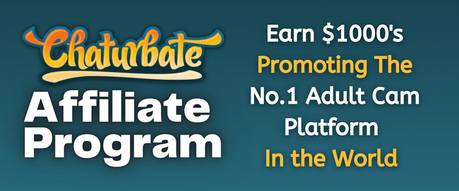The Internet has made it easier than ever to share content online. But that also means a rise in copyright infringement. Shady content thieves have been able to make a comfortable livelihood by committing widespread copyright infringement. All thanks to the simplicity in which content may be stolen and reproduced. The result? A lot of creators are losing money because of this. However, now adult creators have a new anti-piracy option to fight back.
DMCA Notices and Federal Court Litigation
Until now, content providers’ only true legal option has been to issue DMCA notices to infringing websites or their hosts. Hoping that they would follow US copyright law and remove the infringing content. Anything more would necessitate lengthy federal court proceedings and registration issued from the United States Copyright Office.
If the infringement happened before the copyright was registered, the creator was usually limited to merely recovering actual damages only. It was not possible to seek to reclaim attorneys’ fees. Furthermore, litigation of this nature might take years to complete and cost a lot of money.
CASE Act Offers New Option To Recover Small claims
Everything is about to change. The Copyright Alternative in Small Claims Enforcement Act will give adult content creators in the United States a new way to seek “small claims” money damages for copyright infringement. The CASE Act, which was passed in December 2020, allows copyright owners to file an administrative claim with the US Copyright Office to recover up to $30,000 in damages for copyright infringement. Administrators have been working on the rules that will govern how these proceedings are conducted.
Understanding The New Anti-Piracy Option for Adult Creators
The United States Copyright Office issued a rule on April 25, 2022, outlining the processes for making these claims. Along with, opting out of proceedings, and responding to notices through the new Copyright Claims Board, established by the CASE Act. The new CCB is a voluntary administrative forum for resolving any copyright issues valued at $30,000 or less. Acting as an alternative to costly and time-consuming federal court litigation.
How Much Does It Cost To Submit a Claim?
The rule establishes a two-tiered price system with a $40 filing fee and a $60 payment after all respondents have been served and the opt-out deadline has expired. The framework is intended to ensure that submitting a claim under the CCB is not extremely costly. But yet expensive enough to discourage frivolous claims. However, the filing of a counterclaim is free of charge.
What Is The Procedure for Filing a Claim?
Claims must be filed electronically with the CCB and must include the following;
- The parties’ identities,
- Work categories,
- Registration status,
- The type of claim,
- Harm suffered,
- Solution sought,
Additionally, an affirmation certifying the authenticity of the claim’s information.
The Copyright Office will provide educational resources to claimants to help them file their claims. The CCB will look over the claims to see if there is enough information to put the respondent on notice. If not, the CCB will ask for more information from the claimant. Claims of unrepresented claimants’ will be construed broadly to meet the review standards.
What Information Should Be shared?
Claimants and respondents must disclose contact information, either their own or that of their attorneys. This is in order to enable settlements and discovery. In most cases, the claimant must additionally give the address of the respondent. However, if the claimant can establish that the three-year statute of limitations is likely to expire within 30 days of making the claim, this provision can be waived. In such circumstances, the claimant must submit the respondent’s address before proceeding with the claim. But not at the time of filing.
Is It Possible to Have Claims Dismissed?
At any time, a party may request the dismissal of a claim or counterclaim for unsuitability. The issue could also be brought up by the CCB. The opposing party will be given a chance to respond.

What Method Will Be Used to Notify Respondents of a Claim?
The CCB will prepare an initial notice of action. However, the claimant must serve it on the respondent along with the claim. The initial notice will explain what the CCB is, and the nature of CCB proceedings. Standard claim and claimant information will also be included, as well as the respondent’s right to opt-out or proceed. Stating the consequences of each option.
Additionally, there will be details on how to learn more about copyright and the CCB, available defenses, and the differences between federal litigation and CCB proceedings. Pro bono legal aid will be mentioned in the initial notice. Within seven days of service, you must file proof of service or a waiver.
Claimants must also not serve any additional communications with the original notice. For example, settlement demands or exhibits that were not submitted with the claim. During the opt-out time, good faith settlement conversations are welcomed, but they must take place separately from service.
If the respondent has not opted out, the CCB will send a second notice of proceeding to the respondent. This will be no later than 20 days after the claimant files a proof of service or a signed waiver. In terms of content, the second notice is identical to the first.
Can a Company Appoint An Agent for The Service of claims?
Possibly. The Copyright Office is contemplating a separate guideline that would allow corporations and other unincorporated organizations to appoint agents to receive service of the initial notice and claim. The claimant must serve the claim on the appointed agent if one is indicated. Designating an agent can help prevent missing claim notices and provide the company enough time to determine whether or not to opt-out.
Is It Possible for Responders To Decline personal service?
Sure. Claimants may require that the responder sign a waiver of personal service form by mail or other acceptable methods. In some cases, using a waiver service can benefit both parties.
What Is The Process for a Respondent To Opt-out?
The respondent must file a paper or electronic form within 60 days of service. Which includes the docket number, verification code, and specific identifying information. Plus a signed affirmation in order to opt out of the CCB proceeding.
Pursuing a claim further after opting out of the CCB proceedings will require the claimant to file conventional federal litigation. When it is in the interests of justice, respondents may request an extension of the 60-day opt-out period.
After a respondent opts out, claimants cannot usually bring another claim for the same acts or theories of recovery. If the respondent opts out or changes their mind about going to the CCB, the claimant may refile with the respondent’s consent.
What Is The Procedure for Submitting Responses?
Responses must be sent online and include identifying information, as well as specifics about the dispute. Any defenses, relevant evidence, and certification that the material provided is accurate and honest, must also be submitted.
In the notice form and educational materials, the Office will present a list of frequent defenses to respondents.
Is It Possible for The Respondent To File a Counterclaim?
Yes. Counterclaims that result from the same transaction or occurrence as a claim and include copyright or an agreement affecting the relief to be granted may be filed by respondents. Unless there is a strong reason to allow a later counterclaim, counterclaims must be asserted in the response. A claimant cannot withdraw or opt-out of the CCB case once the respondent files a response with a counterclaim.
Closing Recommendations
Adult creators and producers should become familiar with the new CASE Act anti-piracy option procedures. Compared to other methods, they are significantly faster and far less expensive than federal court litigation.
Media outlets and internet platforms should also educate themselves on these concerns and consider appointing an agent to receive notice of claims. This is in order to avoid lost or misdirected notices. If not addressed might result in up to $30,000 in liability.
Given these points, we hope this article gives adult creators an insight into an anti-piracy option that offers something different. Expect a lot of action in this area as this new method of pursuing copyright infringement becomes more popular.
See similar posts:
- Online Privacy Tips for Webcam Models
- Chaturbate DMCA Support for Webcam Models

